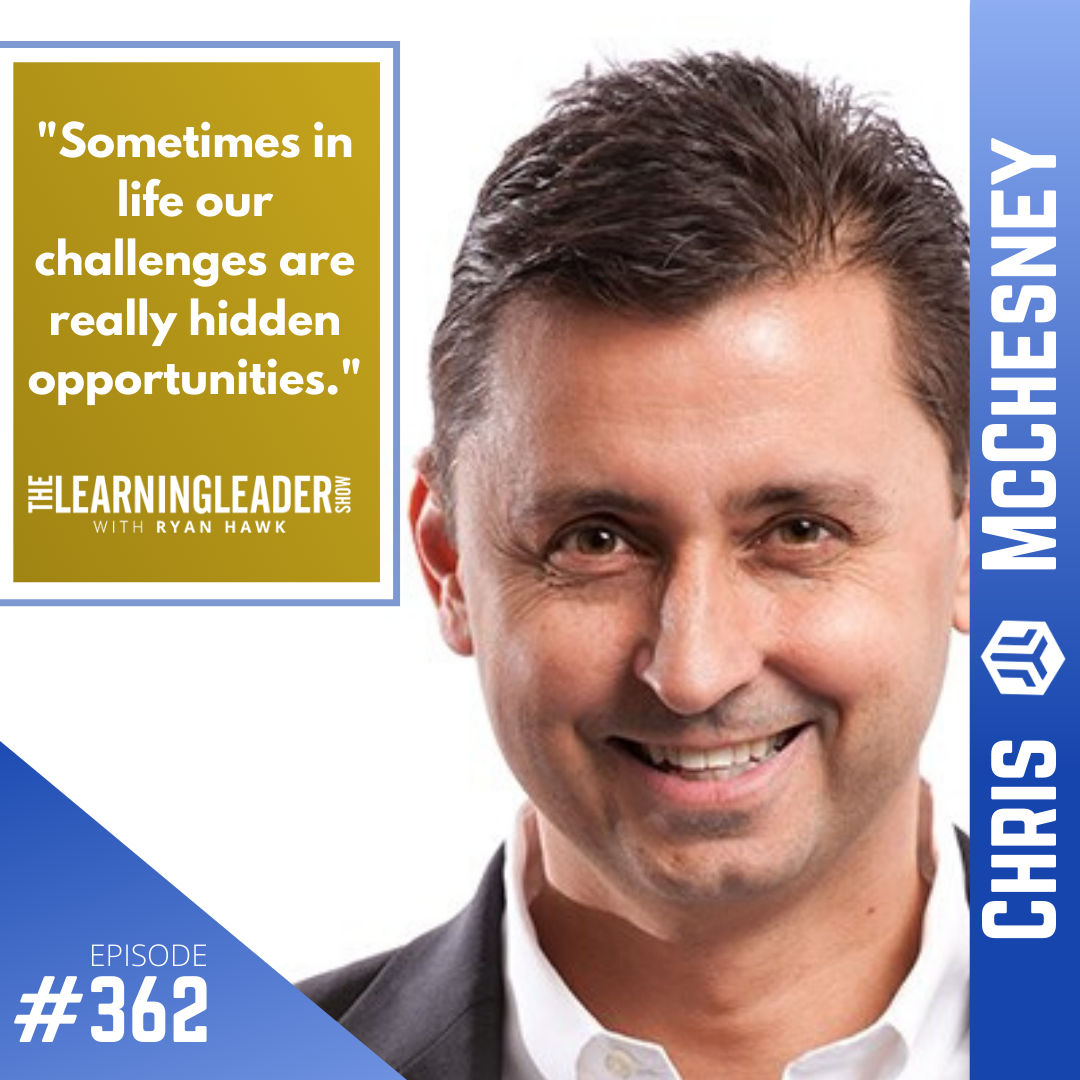Chris McChesney is a Wall Street Journal #1 Best-Selling Author – The 4 Disciplines of Execution. In his current role of Global Practice Leader of Execution for FranklinCovey, Chris is one of the primary developers of The 4 Disciplines of Execution. For more than a decade, he has led FranklinCovey’s design and development of these principles, as well as the consulting organization that has become the fastest growing area of the company.
If you’d like to watch the video of this conversation, CLICK HERE.
FORBES recently called, WELCOME TO MANAGEMENT, “the best leadership book of 2020.”
Be part of “Mindful Monday” — Text LEARNERS to 44222
Subscribe on iTunes or Stitcher Radio
The Learning Leader Show
- Sustaining excellence = They execute on the strategy that’s been launched…
- They have amazing drive
- High expectations – They expect a lot of everyone and do it in a positive way
- They “radiate love.” Warmth…
- Strategy to execution — It’s an art and a science
- “Execution doesn’t like complexity…”
- Great leaders develop pattern recognition over time. An experienced quarterback has more repetitions and the game “slows down” which creates a situation he recognizes
- Three components to any strategy to execution process:
- Lower the blood pressure — “Stroke of the pen.”
- Take life support measurements
- Break through
- What is a ‘stroke of the pen’ action as a mid level manager?
- Modify the portfolio, work within the limited budget, figure out incentives, hiring decisions, combining territories
- “Sometimes in life our challenges are really hidden opportunities.”
- Chris did an unpaid internship. He warned that with Stephen Covey by continuing to show up and add value to the lives of the people at the company.
- Advice: “Work outside of your job description but within your influence.”
- “Don’t fall in love with a solution, fall in love with a problem.”
- “I have never gotten a job from a standard interview process… I’ve gotten seduced by a problem… And then worked to solve it.”
- This is how Chris created a company within a company. He identified that execution was a problem, and worked to solve it.
- Useful feedback Chris received earlier in his career from a mentor: “Chris, when you come to headquarters, people like you, but you aren’t fun to work with.”
- The power of honest, specific, feedback. Paul Walker (President) – “It’s never about him. He’s always interested in understanding what’s going on around him and with others.”
- Pat Lencioni – Not everyone should be a leader… “I don’t like the term ‘servant leadership.’ It makes it sound like there’s any other way.”
- The 4 Disciplines of Execution:
-
Focus on the Wildly Important — Exceptional execution starts with narrowing the focus— clearly identifying what must be done, or nothing else you achieve really matters much.
-
Act on the Lead Measures — Twenty percent of activities produce eighty percent of results. The highest predictors of goal achievement are the 80/20 activities that are identified and codified into individual actions and tracked fanatically.
-
Keep a Compelling Scoreboard — People and teams play differently when they are keeping score, and the right kind of scoreboards motivate the players to win.
-
Create a Cadence of Accountability — Great performers thrive in a culture of accountability that is frequent, positive, and self-directed. Each team engages in a simple weekly process that highlights successes, analyzes failures, and course-corrects as necessary, creating the ultimate performance-management system.
-
- “As legendary Harvard marketing professor Theodore Levitt put it, “People don’t want to buy a quarter-inch drill. They want a quarter-inch hole.”
- “People who try to push many goals at once usually wind up doing a mediocre job on all of them. You can ignore the principle of focus, but it won’t ignore you.”
- “If you ignore the urgent, it can kill you today. It’s also true, however, that if you ignore the important, it can kill you tomorrow”
- “Managing a company by looking at financial data (lag measures) is the equivalent of “driving a car by looking in the rear-view mirror.”
- Optimization – Consistency is wildly important. Lock down elements of the process. Anchor the process at two points. Rule – “If we can meet the lead measure for 14 weeks, we’re calling it a habit.”
- Here is WHY joining a Learning Leader Circle is a good idea…
Resources:
- Read: WELCOME TO MANAGEMENT
- Be part of “Mindful Monday” — Text LEARNERS to 44222
- Read: The Four Disciplines Of Execution
- Connect with me on LinkedIn
- Join our Facebook Group: The Learning Leader Community
- To Follow Me on Twitter: @RyanHawk12
More Learning:
Episode 078: Kat Cole – From Hooters Waitress To President of Cinnabon
Episode 216: Jim Collins — How To Go From Good To Great
Episode #300: AJ & Keith Hawk – How To Instill Work Ethic & Curiosity In Your Children
Episode #303: General Stanley McChrystal – The New Definition Of Leadership


[…] out the Learning Leader podcast with Chris McChesney – How To Achieve Your Wildly Important Goals to listen to Chris talk about this […]